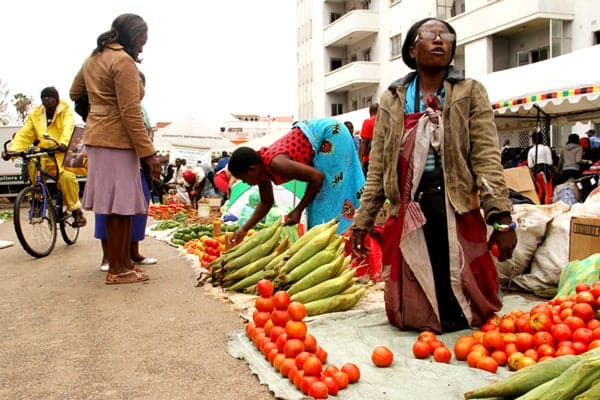The Vendors Initiative for Social and Economic Transformation (VISET) notes that the Minister of Finance and Economic Development Professor Mthuli Ncube will on July 28, 2022, be presenting the 2022 Mid-Term Budget and Economic Review.
The Review will highlight the performance of the economy and the 2022 Budget during the first half of the year and analysing the fiscal and macro-outlook for the year.
And VISET says if need be, this is the occasion the Minister will request for a supplementary budget.
“As VISET we do not claim to be economists but would like to enunciate the challenges faced by our constituency and the nation at large.
“It would require an alien not to appreciate that Zimbabweans are experiencing extreme poverty levels exacerbated by high inflation that is estimated at 463 to 500 percent. This has resulted in the fall of the local currency against the United States Dollar (USD) the preferred trading currency.
“What this has resulted in for the majority of our membership is inability to restock in the main instances where they sell to customers in ZWL yet major retailers and wholesalers are demanding USD or charging products at black market rates,” says VISET.
The lot of those involved in farming and selling of horticultural products is no better, where they either face the scourge of middlemen at farmers’ markets or cheap imports from neighbouring countries, points out the vendors’ body.
It is estimated that more than 7.9 million Zimbabweans are living on less than USD1 per day and where government as the main formal sector employer is paying its employees less than ZWL 90000, with the Consumer Council of Zimbabwe estimating that the average family basket stands at ZWL 143 000.
It is also likely that grain imports will need to be increased, following the drop in harvest of the staple maize which recorded a 43 percent drop.
All public service unions have signed on to begin a two-day working strike in protest at working conditions and poor remuneration. In the health sector, public hospital suppliers have complained of delays in payments, with some of them issuing notices of suspension on surgical operations and the breakdown of essential machinery.
It has been reported that the Ministry of Health has only drawn down 14 percent of its allocation and so are bewildered as to the source of delays for such a key sector.
On the social front, the drug scourge is wreaking havoc in urban areas across the country with the few treatment and rehabilitation centres overwhelmed.
Meanwhile, cases of armed robberies and fraud cases are at unprecedented levels leaving communities vulnerable, as reported by our Domboshava chapter to cite just on example.
From the above, there is no way that there can be a claim of attaining middle income economy status any time soon when we are nowhere near attaining Sustainable Development Goal number one of no poverty.
“Inequalities in our society have increased, with mansions sprouting up in the affluent suburbs of Harare, whilst families in Cowdray Park scramble to get a decent meal in a day.
“We urge the entire government of Zimbabwe to reflect upon what interventions Minister Ncube will present and ask themselves if these will answer to the daily lives and needs of those in Brunapeg, Mphoengs, Mudzi and Magunje, or they are more suited to those who can afford to purchase gold coins,” notes VISET.
Zwnews













